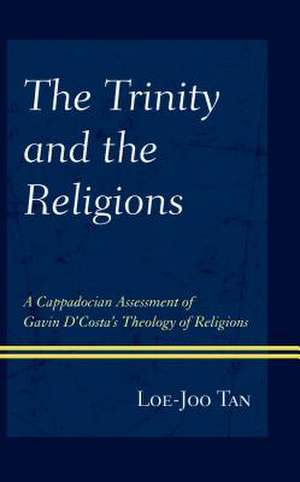TRINITY AMP THE RELIGIONSA CAPPCB
Autor Loe Joo Tanen Limba Engleză Hardback – 14 sep 2018
Preț: 720.90 lei
Preț vechi: 987.54 lei
-27% Nou
Puncte Express: 1081
Preț estimativ în valută:
137.94€ • 144.02$ • 114.17£
137.94€ • 144.02$ • 114.17£
Carte tipărită la comandă
Livrare economică 04-18 aprilie
Preluare comenzi: 021 569.72.76
Specificații
ISBN-13: 9781978700604
ISBN-10: 1978700601
Pagini: 300
Dimensiuni: 152 x 229 x 25 mm
Greutate: 0.72 kg
Editura: Rowman & Littlefield
ISBN-10: 1978700601
Pagini: 300
Dimensiuni: 152 x 229 x 25 mm
Greutate: 0.72 kg
Editura: Rowman & Littlefield
Notă biografică
Descriere
This book examines the trinitarian underpinnings of a form of inclusivism that has been propounded by British theologian Gavin D'Costa by drawing from the work of the Cappadocian Father Basil of Caesarea and his doctrine of the Trinity.
